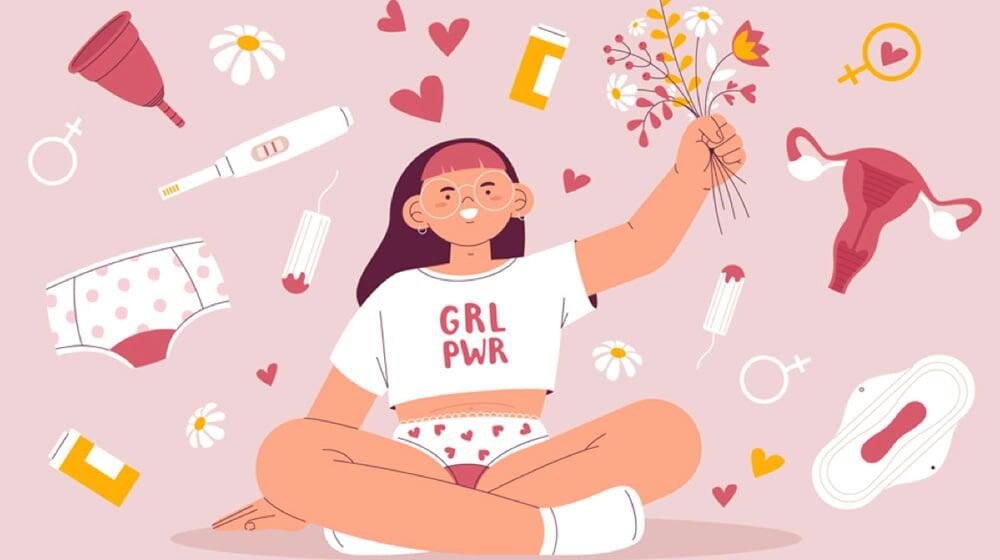Women and girls have the right to menstruate without missing out or being cast out, without feeling fear or shame, and without being exposed to more vulnerabilities or treated like less. Living with dignity, even during disasters, is a fundamental human right that should be preserved. This collection of profiles celebrates some of the menstrual health heroes in the Asia Pacific region who are breaking taboos and ensuring that all people who menstruate are supported and protected before, during and after disasters.

Anna Mogi - Solomon islands
“I talk to adolescent girls between the ages of 12 to 14 because that's when they start to menstruate,” says Anna. “I take these girls in a group and we talk about the changes in their bodies and what will happen to them soon. I talk about menstruation and I tell them it’s normal that they go through this; our mothers, our sisters and our grandmothers menstruate.”
Anna Mogi is a volunteer at the Solomon Islands Planned Parenthood Association (SIPPA) in Honiara. She lives in the bustling capital of a country that now has the largest number of adolescents and youth among 14 Pacific nations. In the Solomon Islands young people face a mix of climate impacts and economic pressures combined with patriarchal social norms. Anna is helping girls in the first years of adolescence by giving them critical and accurate information about their bodies.
“I tell the girls, ‘When you menstruate, you don’t need to be afraid.’” Anna says many girls are reluctant to talk about menstruation because of social stigma. “I say to the girls, ‘Don’t be shy, because menstruation is normal for everyone. We really need to break the barriers and taboos. Even our brothers and our fathers need to know what’s happening with our girls.”

|
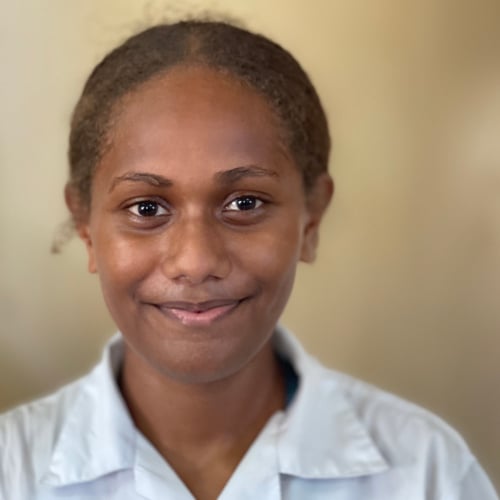
|
Anna says those first conversations with girls build a foundation of trust that she carries on in talks through regular and informal community visits, as the girls learn about issues of teenage pregnancy and sexually transmitted infections (STIs).
“I see a lot of young girls experiencing teenage pregnancy,” she says. “Some have STIs and take home remedies that are unsafe. Speaking with me as a woman, they’re not afraid - it’s just woman-to-woman conversations. I tell them the stories are confidential, it's just between me and her.”
Anna has been a volunteer with SIPPA for over 10 years. She has taken part in several UNFPA training sessions to ensure conversations about menstrual health are happening, including with marginalised groups like people with disabilities. She says the regular discussions are having an impact.
Anna says it’s gratifying to see young women who she met nearly a decade ago when talking about their periods, now at university or working and making informed choices about their bodies. “When girls take contraceptives and complete their education, they can do whatever they want. I see the young women, they’re now in their late 20’s and they chose not to get pregnant early because they wanted to finish their school first and have a job. It’s good seeing all those girls with good motivations and they continue taking contraceptives.” ©UNFPA/Rose
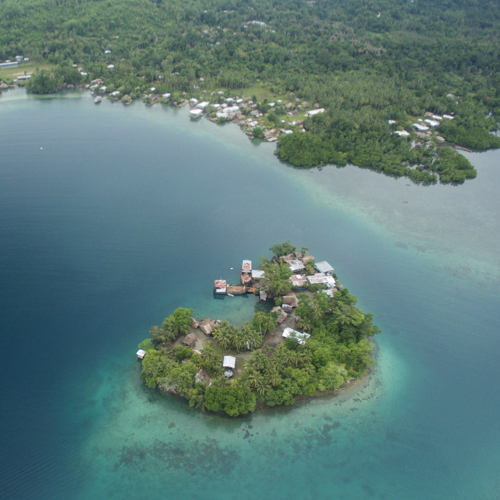
|
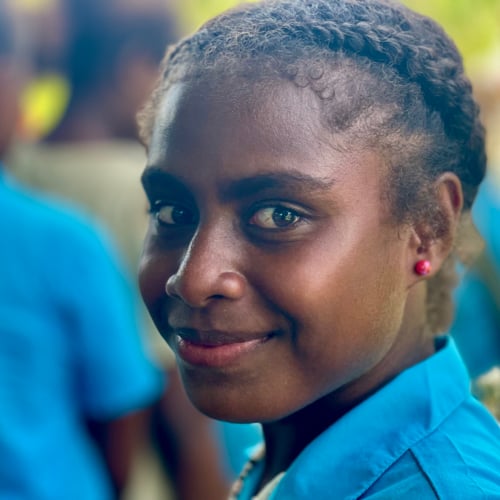
|

Janine Cruzet - Philippines
“In the face of climate change and disasters, the struggles of persons with disabilities and their menstrual hygiene management often go unnoticed,” says Janine.
Janine Cruzet runs the disability rights group called Women with Disabilities Taking Action on Reproductive Health and Human Rights. She recently conducted a series of workshops with women in her network about the challenges they face managing their menstruation during disasters.
“Sarah is a wheelchair user with limited access to menstrual products and facilities even on regular days,” Janine says. “During an extreme storm, she faces exacerbated difficulties: evacuation centres lack accessible toilets, sanitation facilities and essential hygiene supplies. The chaos of disaster response amplifies her isolation, forcing her to rely on makeshift solutions or forego menstrual hygiene altogether, risking her health and dignity.”
Janine says that ensuring accessible facilities, providing clear information in different formats and offering support tailored to persons with disabilities are crucial steps in safeguarding their well-being during crises.
“Emily is a friend who lives with a visual impairment, making everyday tasks like finding menstrual products and navigating public facilities a challenge,” Janine says. “During emergencies like floods or storms, these difficulties are intensified. When a typhoon approaches her town, the evacuation centre is a whirlwind of activity, but for her, it is a maze of inaccessible bathrooms and a scarcity of hygiene supplies. With her heightened sense of touch, Emily struggles to find what she needs among the chaos. The lack of privacy and proper facilities forces her to make do with whatever she can find.”
Janine says these stories echo the experiences of many others with disabilities during emergencies in the Philippines. “It's a reminder that disaster preparedness efforts must be inclusive and considerate of diverse needs. There is an urgent need for more inclusive disaster planning and menstrual hygiene management strategies.”
She says that recognizing and addressing the specific needs of persons with disabilities is essential for ensuring their safety, dignity and well-being during emergencies. “It’s about safeguarding the rights and dignity of all individuals, regardless of ability in times of crisis.” ©UNFPA Indonesia/ Lucky Putra READ MORE

Reni Gusnaeni - Indonesia
“I am a child with a healthy body, going through puberty,” students sing at a special needs school in Bandung. Teaching young people about reproductive health, the physical and emotional changes that come with puberty and consensual and non-consensual touch can be a challenge in many cultures. The cultural obstacles are even greater when it comes to teaching young people with intellectual disabilities.
Reni Gusnaeni and special needs educators in twelve Indonesian provinces are pioneering a learning approach designed to give young people a better understanding of their sexual and reproductive health and reproductive rights, and more confidence and autonomy.
Reni’s puberty song is part of a series of educational tools inspired by a training course UNFPA designed jointly with Indonesia’s Ministry of Education, Culture, Research and Technology, and Ministry of Health. Those tools have helped the students at her school set bodily boundaries and become more assertive in safeguarding them.
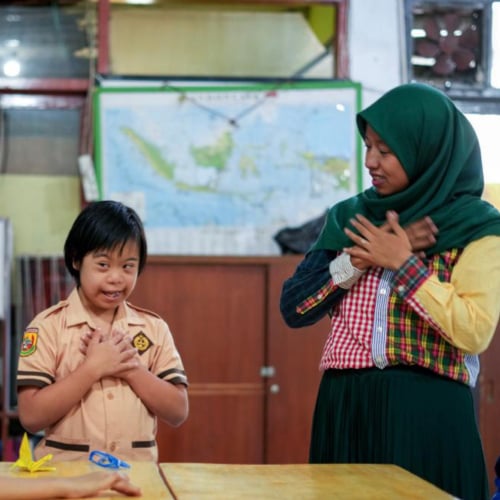
|
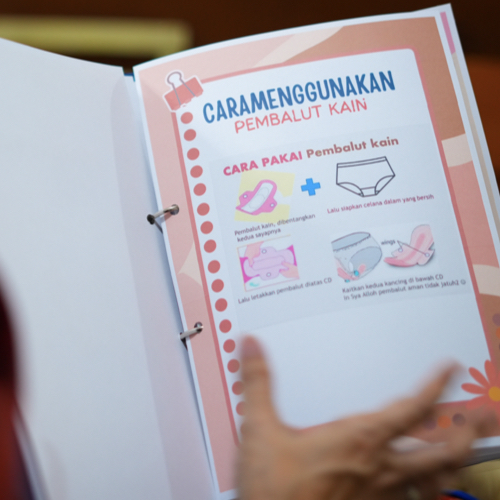
|

|
“Now they can say no to people who want to touch them, even when they’re playing,” Reni Gusnaeni says. “They are also more confident to set their private space like when they go to the bathroom.”
Learning materials Reni adopted or developed include anatomically correct dolls and annotated aprons teachers can wear that illustrate the male and female reproductive organs. She also created a tactile book that helps students with intellectual disabilities learn to manage their periods. Over a series of pages, soft felt pouches feature products like sanitary towels, tampons, and menstrual cups. ©UNIC Jakarta READ MORE
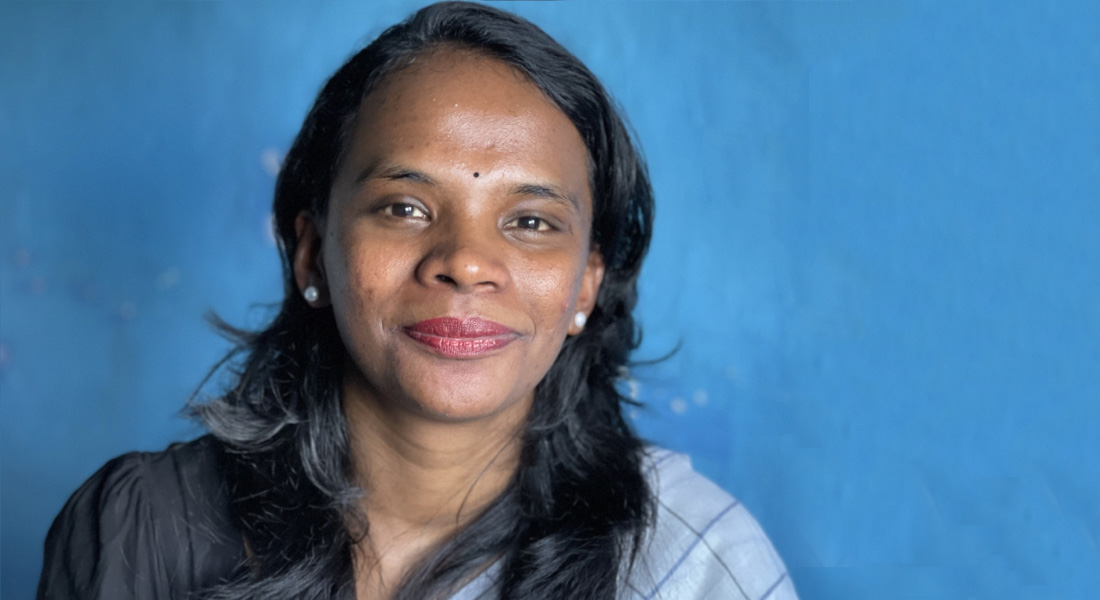
Anjalika Kumari - Sri Lanka
Anjalika Kumari is a psychological counsellor by profession, who dedicates her time volunteering in the estate sector in central Sri Lanka. She works to support women and girls on the tea plantations in Nuwara Eliya. Life on the plantations is not easy for teenage girls, who lack mentors and reliable sources of information in the isolated itinerant communities, where parents work long hours harvesting tea on the steep and muddy slopes of mountains. As part of the response to the economic crisis, Anjalika leads grassroots information sessions with teenage girls to help them understand the sexual and reproductive health services that are available and to break the silence on menstrual health.
“We have so many myths about menstruation and menstrual hygiene in Sri Lanka,” she says. “The girls are very keen to learn about accurate information. They are keen to expand their knowledge on menstrual hygiene and sexual and reproductive health.” Anjalika says a large part of her sessions are spent addressing the misinformation the girls have learned about menstruation. “The girls have heard rumours that you cannot exercise when you have your period, that it's not time for going out or doing anything and it's bad or dirty blood. Some girls are told to stay out of the house when they are menstruating. All these myths and misconceptions we have to clear up.”
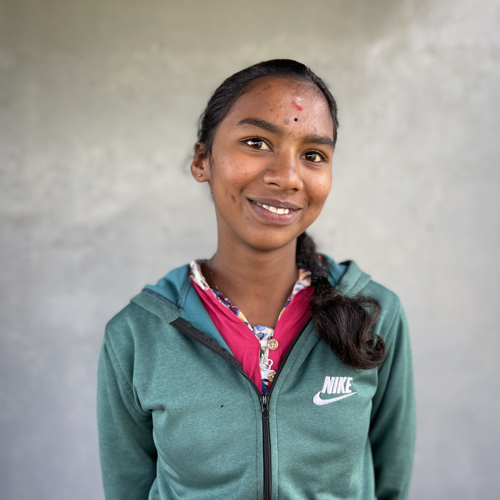
|
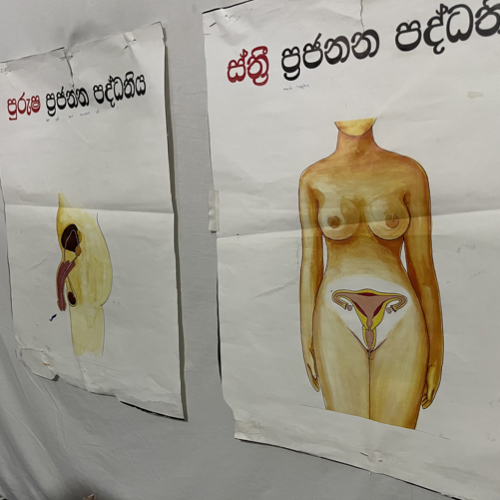
|
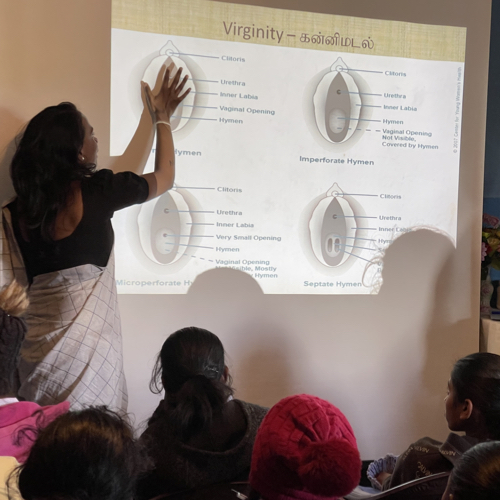
|

|
She says the response from girls and the community is enthusiastic. “We use a hotline with counselling to clarify any doubts or questions. After the programmes they personally come and talk to us. I received a call from some parents to give personal counselling and we receive a lot of messages from the schools to conduct the programmes about menstruation in future.”
Anjalika says the girls and families need more than just information- they need “economic support because their financial stress has a major impact on them.” With teenage pregnancy and sexual abuse widespread on the plantations, Anjalika says prevention is better than cure. “We have to prevent teenage pregnancy by teaching them about their bodies. I'm happy I can share some knowledge about menstruation with these girls. I am opening their minds.” ©UNFPA/Rose READ MORE
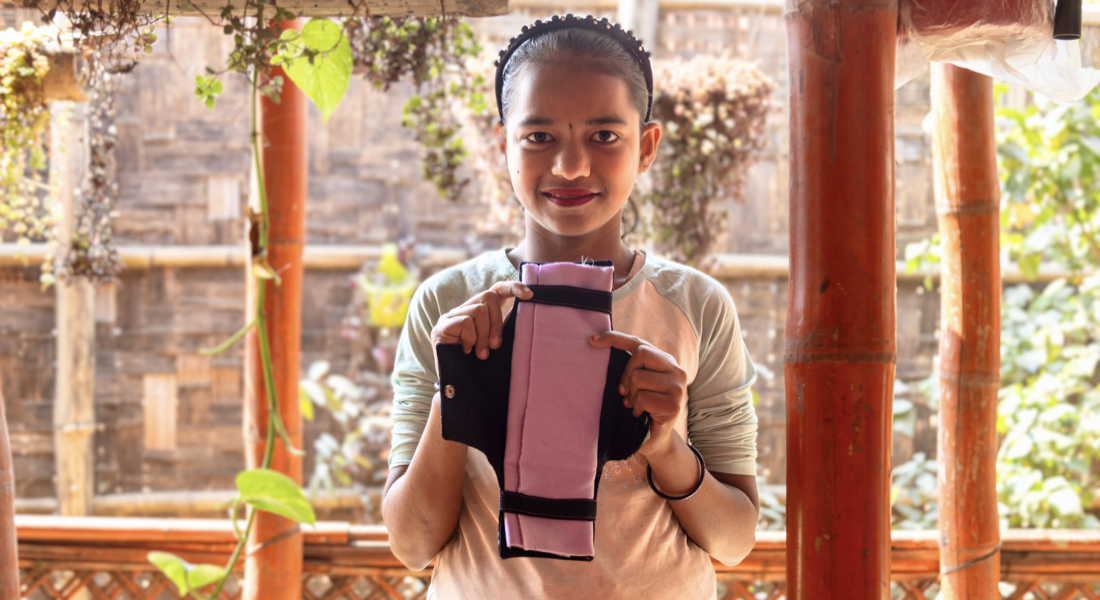
Shakila - Bangladesh
“I learned how to make reusable sanitary pads and now I can make them for my sisters,” says Shakila. She is a young girl who lives in the refugee camps in Cox's Bazar, along with over 1 million Rohingya people who sought refuge here 7 years ago.
In the densely populated camps, menstruation remains shrouded in taboos and misconceptions, presenting obstacles to proper menstrual hygiene management. These challenges lead to unhealthy practices, increasing the risk of infections and long-term health issues. UNFPA launched a programme on self-reliance skills education, with a focus on making reusable sanitary pads.
More than 4,000 people, including 2,050 adolescent girls and 2,112 female caregivers, participated in sessions to sew the reusable pads across camps and host communities. They have produced more than 5,470 reusable pads and over 3,000 of these have been pre-positioned as part of emergency preparedness efforts. ©UNFPA Bangladesh READ MORE

Saimone Tuni - Fiji
“It’s not easy to be a member of SOGIESC (sexual orientation, gender identity, gender expression and sex characteristics) in Fiji, a country where there is a lot of pushback on this issue,” Saimone says. “When it comes to climate change, our people are left out. When it comes to evacuation, when it comes to assistance, anything that is related to climate change, our people are left out because of their identity, their sexual orientation, their perceived gender expression.”
Saimone is the Board Chair of the Rainbow Pride Foundation. He says this lack of inclusion in climate discussions reinforced a feeling of alienation for marginalised groups like the SOGIESC community. “It confirms for our people the core belief that they are not worthy, that they are unloved by society. This lack of recognition affirms these beliefs that they have accumulated over many years about themselves. It's an accumulation of experiences that made them believe that they do not belong.”
He says the solutions to dissolve this toxic mistrust will take time but “there are a lot of things to do in every organisation that looks after the well-being and interest of people across Fiji.”
“The conversation on inclusion should really mean inclusion,” he says. “The government has a lot of work to do in this area.”
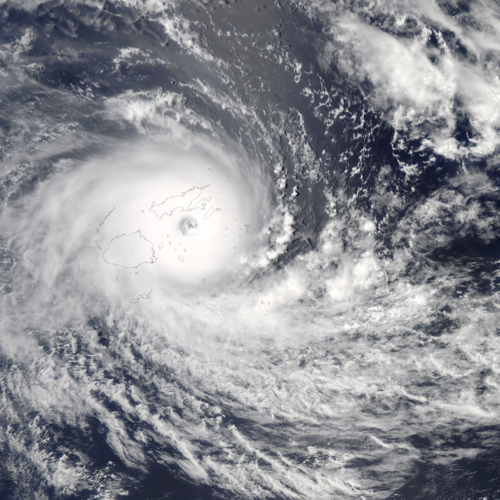
|
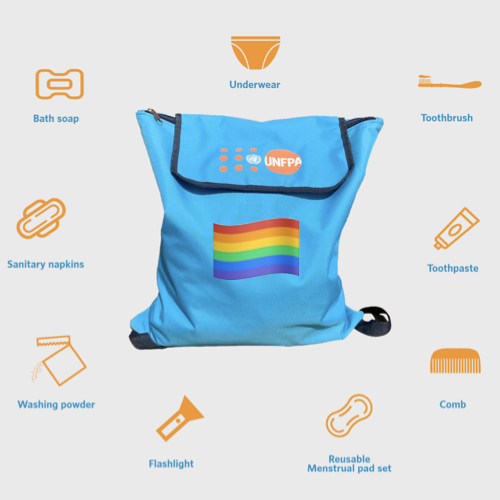
|
UNFPA worked with the Rainbow Pride Foundation to create a customised dignity kit to address the unique needs of SOGIESC individuals to help them recover post-cyclone in evacuation shelters or in their homes. The new ‘pride kit’ is a first in the Pacific and it includes essential reproductive health commodities, personal hygiene products and information on sexual and reproductive health (SRH) and GBV. The items were suggested and validated by diverse SOGIESC communities, ensuring that the kits meet their needs and are fit for purpose, including their menstrual health needs.
After several months of consultation with community members, up to 100 Pride Kits are ready for the pilot phase. The kits are prepositioned in government warehouses and set to make a difference in the lives of SOGIESC individuals in future disasters. ©UNFPA/Rose
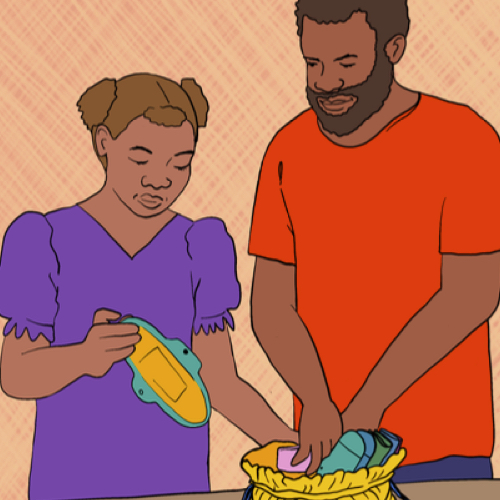
|
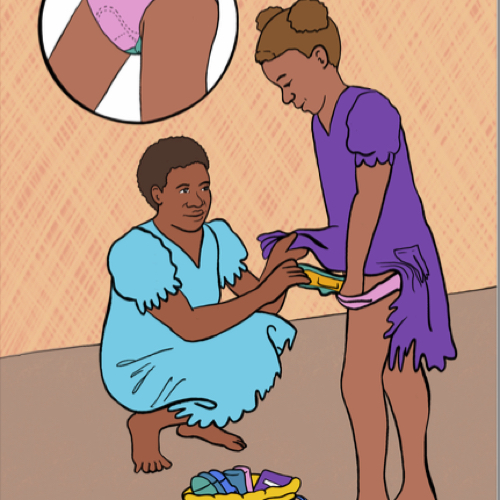
|
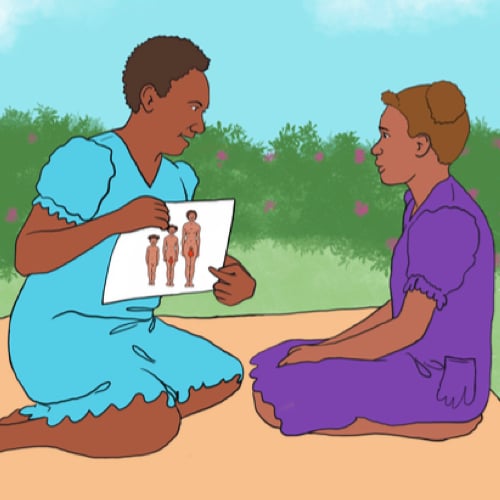
|
Veivanua - Vanuatu
The Veivanua campaign is a menstrual health intervention for people with intellectual disabilities and their caregivers in Vanuatu's humanitarian setting. It grew out of a 2019 survey that highlighted the needs of girls with intellectual disabilities. “In these provinces there was very little to no information available at the community level,” says Ellis Lee, one of the leaders of the project. “The girls are central as it enables young people to manage menstruation as independently as possible with support from caregivers. “We developed information on how to care for them and what to use to support women and girls with intellectual disability”
“Veivanua tries to support the girls and the women prior to a cyclone and after a cyclone,” says Ellis. “The girls got a pack with a picture-based book that their carers used along with a doll to teach the girls how to go about their menstrual health and how to address the issue of the shortage of menstrual hygiene products available at the community level.”
The pack also presents general information on how the body works so that the girls understood that menstruation is normal. “It teaches them that menstruating is part of growing up, it is part of body changes and they will be experiencing it for most of their lives.” The campaign was adapted for the Pacific context, from the Bishesta campaign in Nepal. The collaboration includes the International Center for Evidence in Disability at the London School of Hygiene and Tropical Medicine and World Vision Vanuatu.
Ellis says the project is starting to shift mindsets by raising more awareness about the importance of menstrual health when families evacuate for protection during a cyclone. “Veivanua helps ensure that people with intellectual disabilities, their carers and their families relocate to safety with the menstrual products to use while they are at the evacuation centre. The discussions are also changing the mindset of community members to allocate resources, to talk about where these girls can go to use rooms in the evacuation centres that provide more privacy. Inclusion is still a work in progress, but community members are starting to see why it's important to have people with intellectual disabilities included and work on the existing barriers.”

|

|

|
The picture-based book is designed to be accessible for people with intellectual disabilities. The book shows girls how to use the menstrual products. “It has a clean product and a ‘soiled’ product so that it teaches the girl what to do, where to get the product, how to put it on and when to change it. All these are tailored into the conversation that the facilitator has with the girl with the disability and her carer.”
The information is delivered to the girls with the carers alongside to support and translate into a dialect girls can understand, so that they are clear on the purpose of having a book and the doll. “The doll has different facial expressions and the girls really relate to the doll. When we did the training here in the capital Port Vila, the girls were so attached to the dolls and they would hug the dolls and talk to their siblings about the dolls.”
The campaign was delivered to a group of 30 young individuals with intellectual disabilities and 35 caregivers. Male and female caregivers reported an increased ability to support young people's menstrual health and greater preparedness for the next emergency. READ MORE
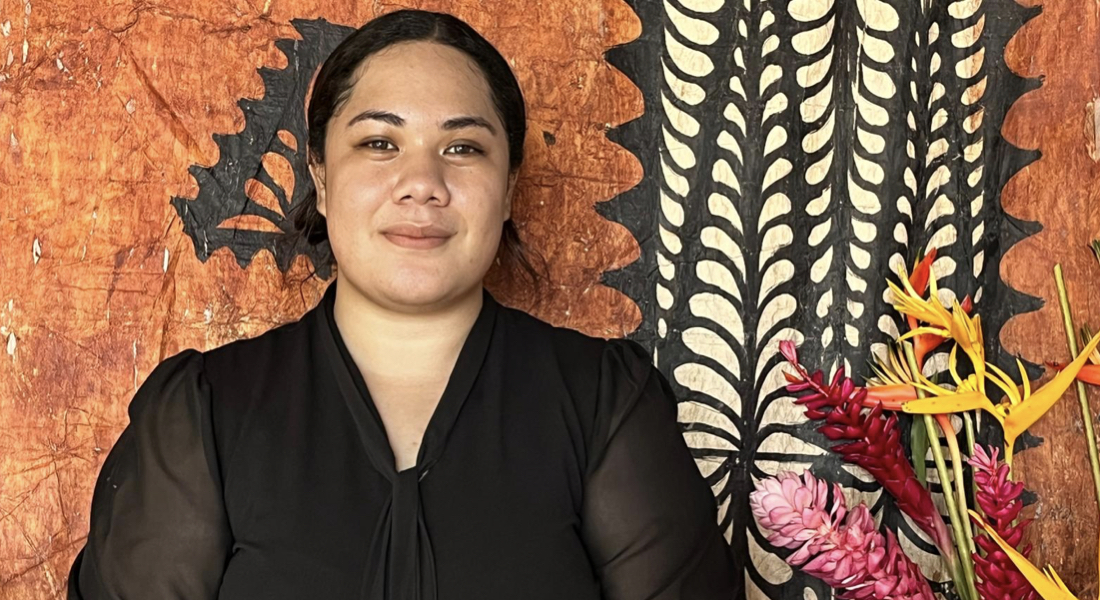
Atanua Mahe - Tonga
Following the “Triple Disaster” of the eruption of the Hunga Tonga–Hunga Haʻapai volcano in January 2022, the resulting large-scale tsunami, and the concurrent COVID-19 pandemic, Atanua Mahe was working as the Youth Officer with the Talitha Project to set up the first-ever mobile Women and Girls friendly Spaces (WGFS). “My role in the Women and Girls Friendly Spaces is focusing on the topic of menstrual hygiene,” says Atanua. “I'm not going to lie, it's quite hard work, especially going out into the communities.”
She says she was shocked by the lack of information and knowledge that the women and girls had. “We went out to the communities where some of the young mothers and adult women don't know about the process of menstruation or how the women have their monthly period. I was not quite expecting that.”
Talitha Project focuses on empowering girls and young women in vulnerable communities on disaster preparedness, community resilience and menstrual health awareness. “In Talitha, we run projects on disaster preparedness. It's everyone's responsibility to be prepared before a disaster. When a disaster hits, we have to know what to do. We must have a plan in hand, it makes things easier.” ©UNFPA Pacific/Ana Maria Leal

|

|

|

Sujata - Nepal
“I started my period yesterday,” says Sujata. “I didn’t have any hygiene products and I didn’t know what to do.” 14 year old Sujata lost her home in the 6.4 magnitude earthquake in western Nepal in November last year. The earthquake and 350 aftershocks killed 154 people and destroyed 62,000 houses, pushing families to live out in the open in makeshift tents. It was impossible for Sujata to retrieve any of her belongings because they were buried under the rubble of her house.
UNFPA responded by supporting women and adolescent girls with essential hygiene supplies for dignified menstruation. 7,500 prepositioned dignity kits and 4,500 specially adapted kishori kits for adolescent girls like Sujata were in place, ready for distribution. READ MORE
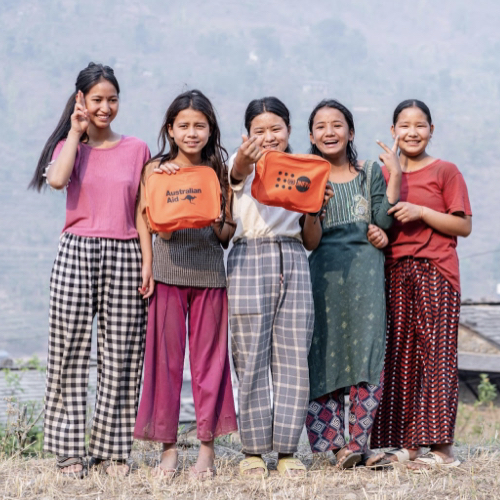
|

|

|
Learn more
Menstrual Health Waste Management: Understanding the Menstruator
Menstrual Waste Management Series: Emerging Solutions
Climate change and health supply chains
Menstrual hygiene management (MHM) in emergencies toolkit
Menstruation in a Global Context: Addressing Policy and Practice
Religion, Menstruation, and Refugee Realities: Insights from Rohingya Girls and Women
Period products: How menstruation is managed around the world
The Health Crisis That No One Wants To Talk About
Menstrual Health and Hygiene Management for Persons with Disabilities
What are the cultural stigmas towards menstruation?
Period. End of Sentence. | FULL FEATURE | Netflix
UNICEF: Menstrual Health in Asia and the Pacific
BBC People Fixing the World Fighting period poverty
WASH Session - Education about menstruation in emergencies

